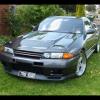Scary Oil Pressure
Announcements
-
Similar Content
-
Latest Posts
-
By hardsteppa · Posted
Not sure if you're being serious? I, and all the car people i know, ALWAYS use a torque wrench for wheel nuts. I assumed any car person, apart from tyre centre monkeys with rattle gun in hand, would do it properly. Anyway, no further reply from me on this unless legit discussion from OP or his query so, over to you, knock yerself out. -
Why not? Since mines been built, I've used low boost maybe 5 times.
-
Yeah, so widen your search to any Nissan speedo first, then go wider if needed. I will say though, that there is a better than even chance that what I said first will likely come into play. They quite possibly won't come apart without damage. I tried to disassemble a stepper gauge that I wanted to repair. There was no way that needle was coming off the spindle, and I could not see how the spindle would come out of the mechanism behind. Assembled once, never to be disassembled, was my conclusion. Could be the same on the R34 cluster. Failing that - take the cluster to a workshop that specialises in automotive instrument work. There's usually at least one in every Australian city. They'll either be able to do it for you for small cost, or tell you it can't be done. It might be that "it can't be done" unless you follow some arcane procedure, including trickiness to glue it back together or something, that only experienced techs know.
-
Well, given that I, an engineer, almost never bring out the torque wrench to tighten up chassis bolts, despite fully knowing the theory, and instead rely on feel, which I happen to know is exactly how the majority of mechanics do things, should tell you the level of actual peril that exists from not achieving exactly 88 Nm of torque. How about if I just say then that 88Nm is at the lower end of the correct wheel nut torque range? Everyone knows how to tighten a wheel nut, right? And almost no-one ever brings out the torque wrench for that task
-







Recommended Posts
Create an account or sign in to comment
You need to be a member in order to leave a comment
Create an account
Sign up for a new account in our community. It's easy!
Register a new accountSign in
Already have an account? Sign in here.
Sign In Now